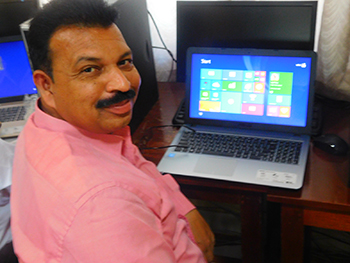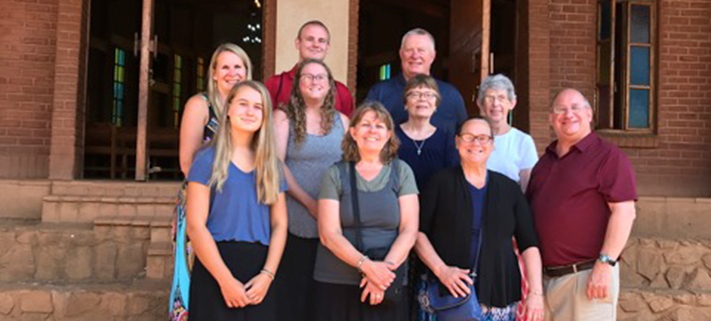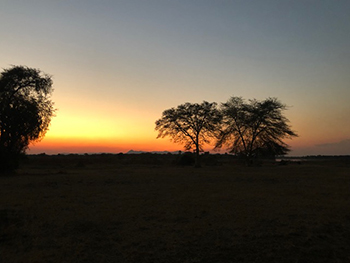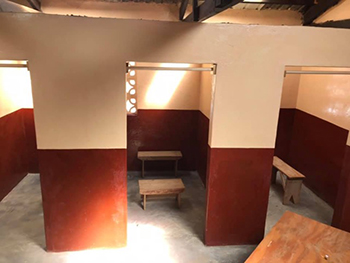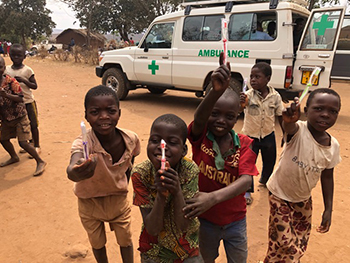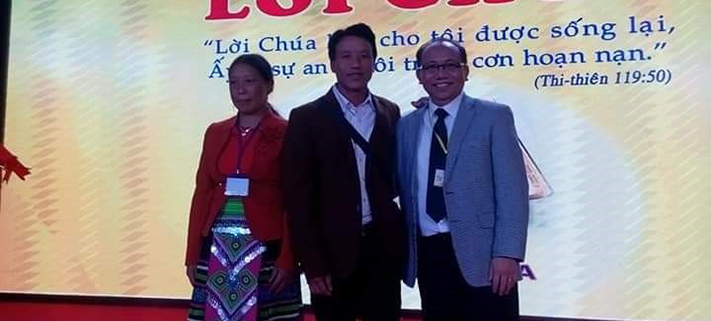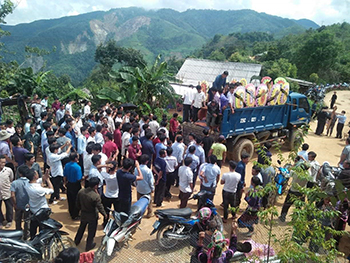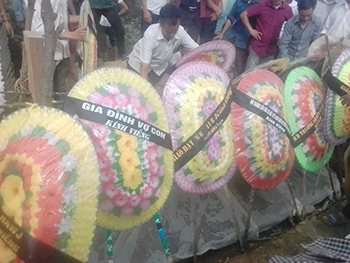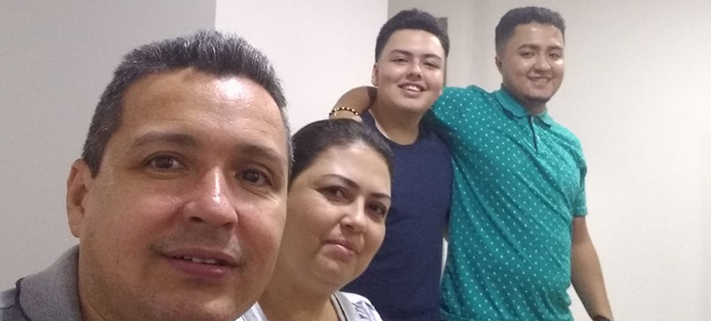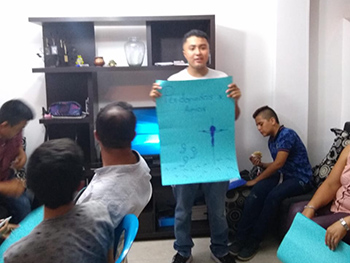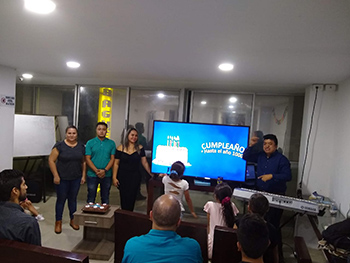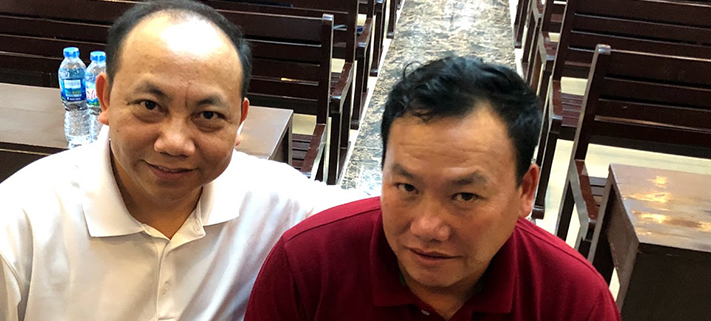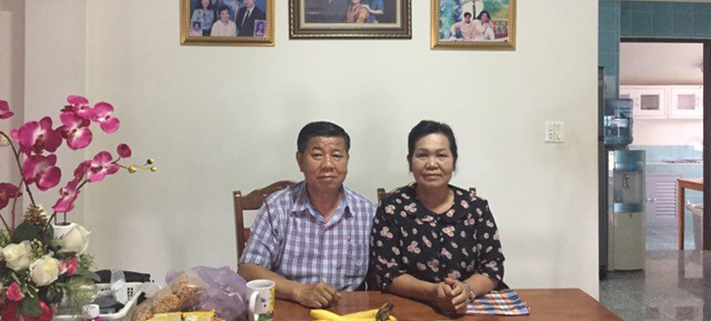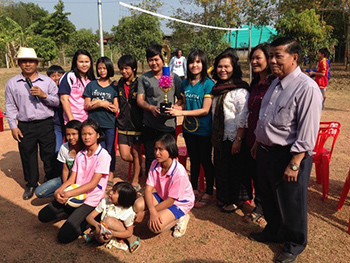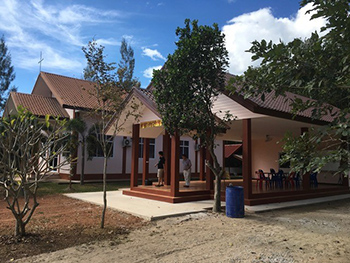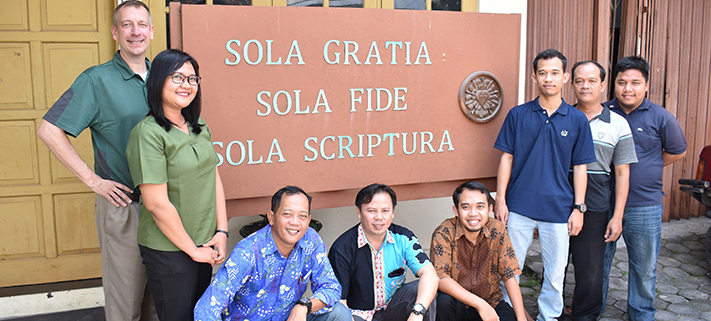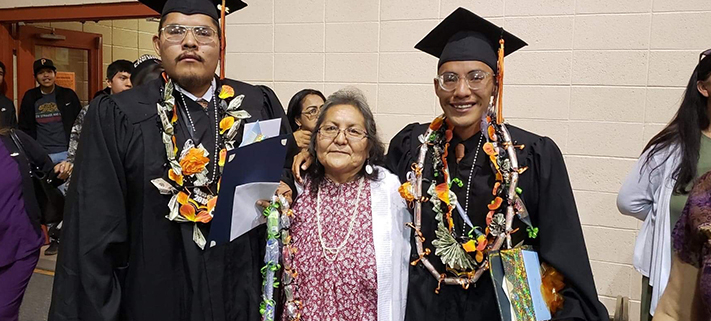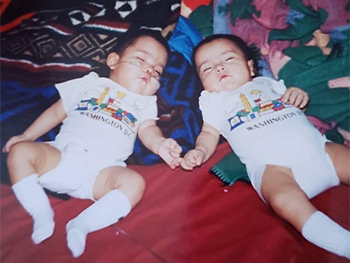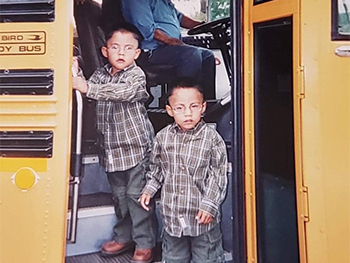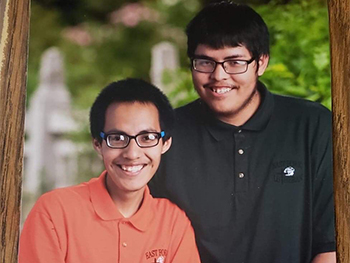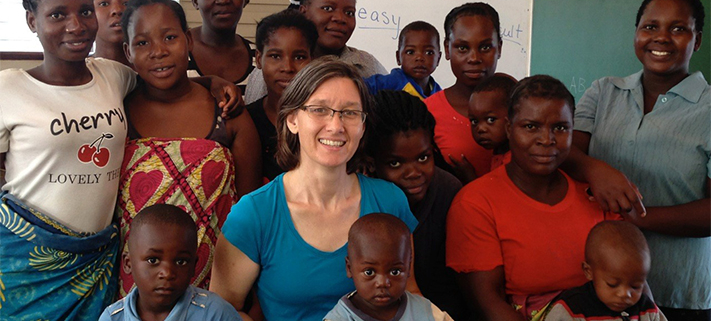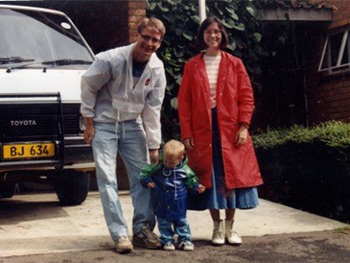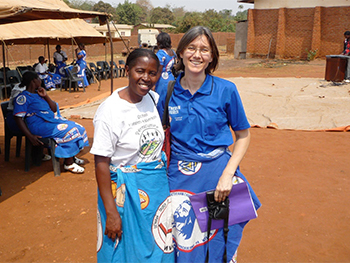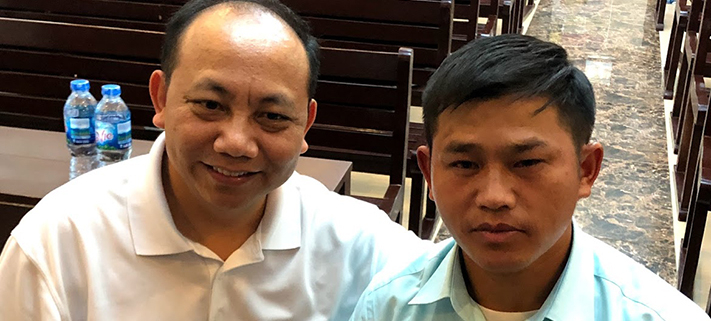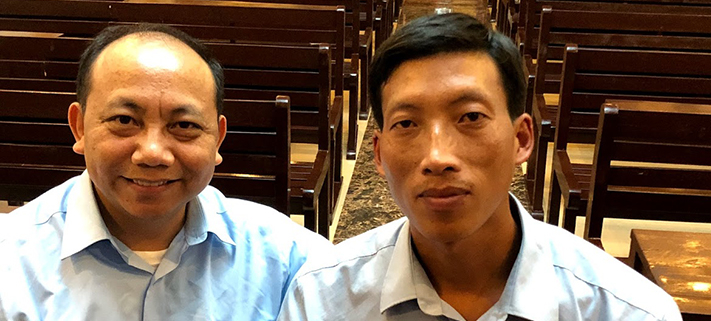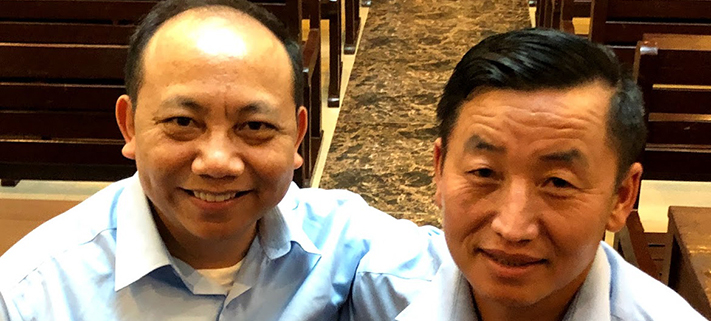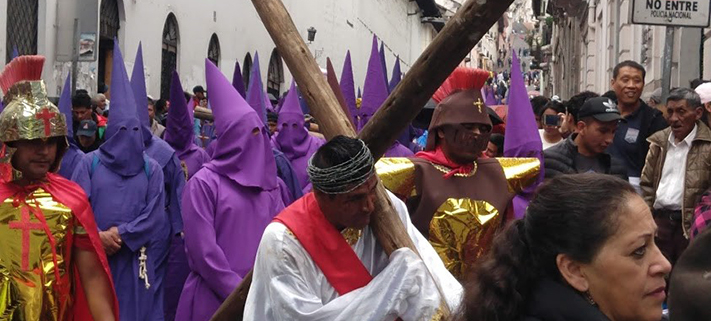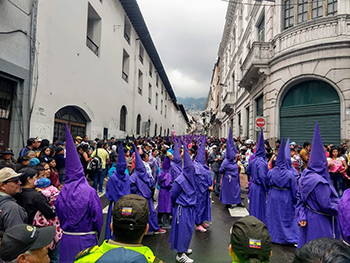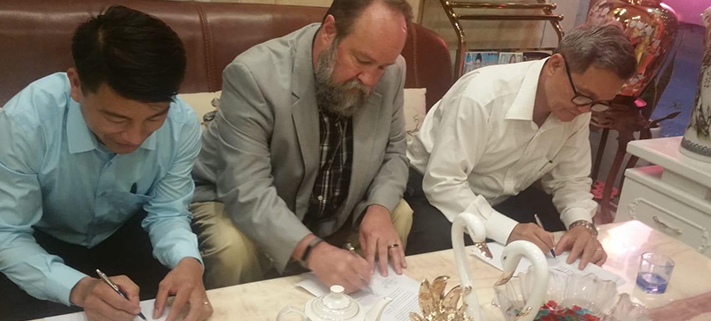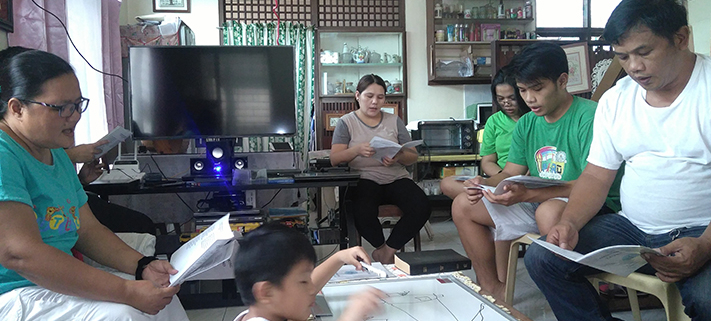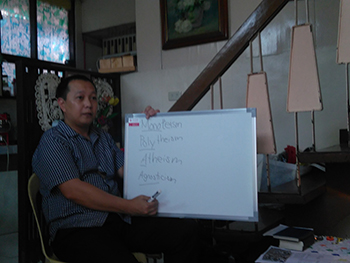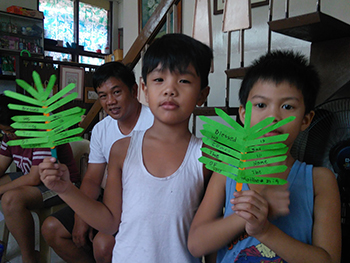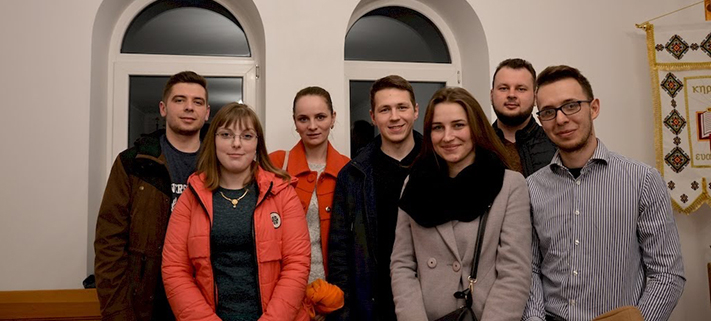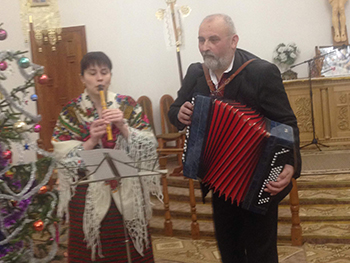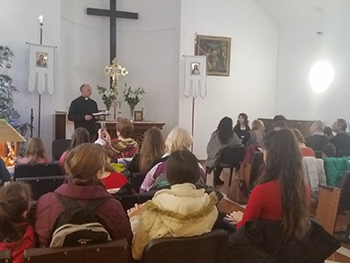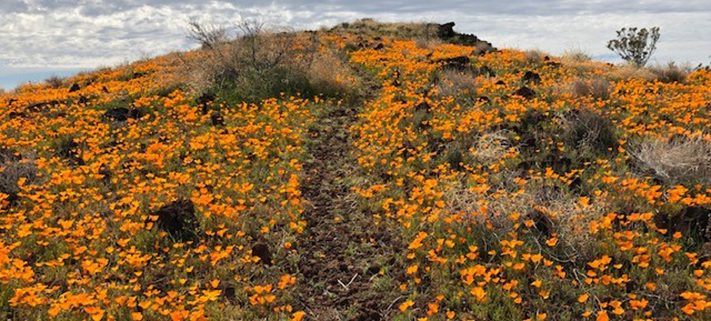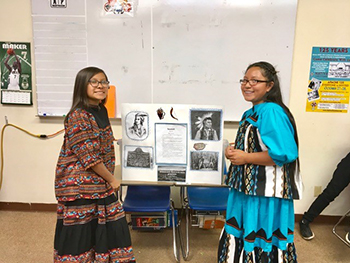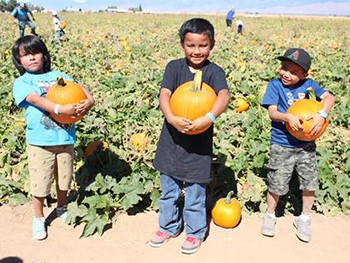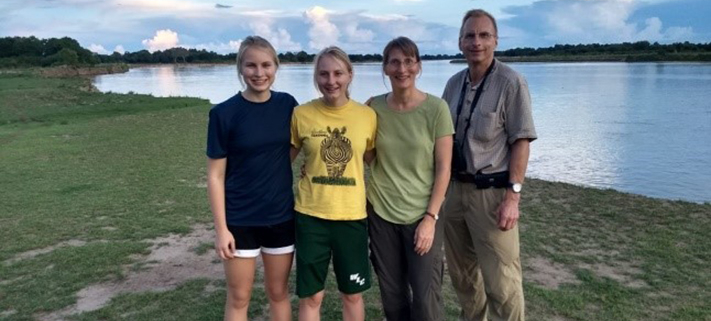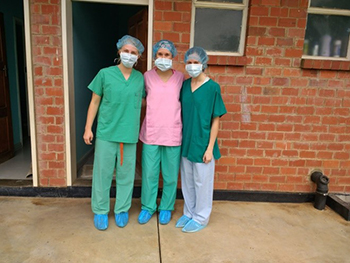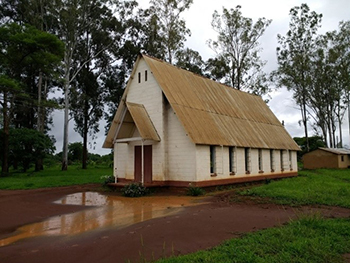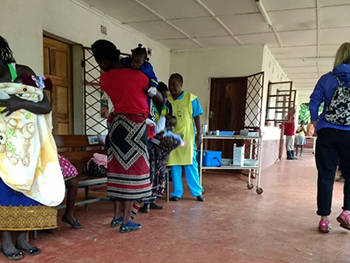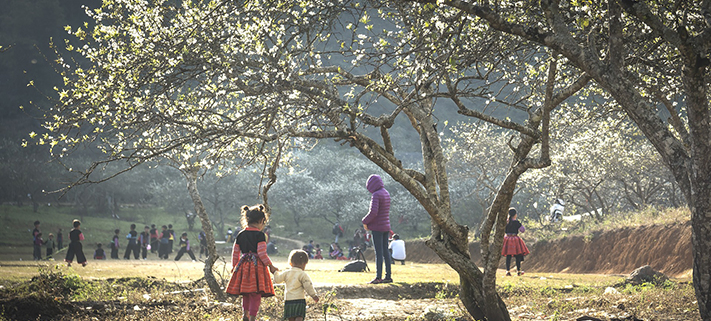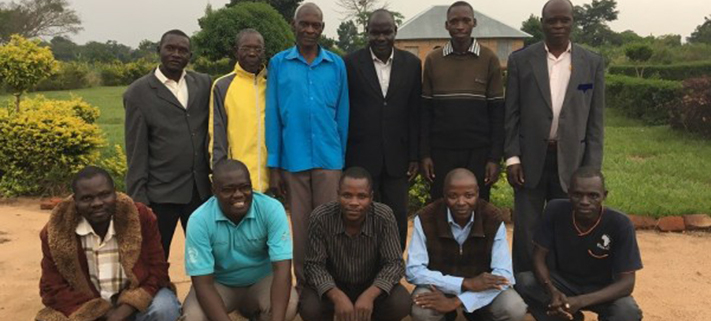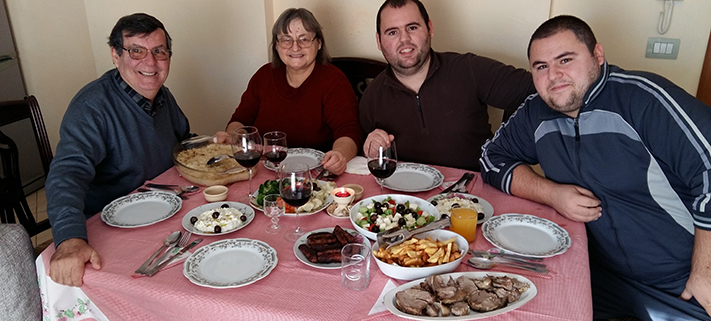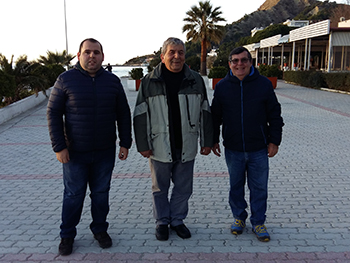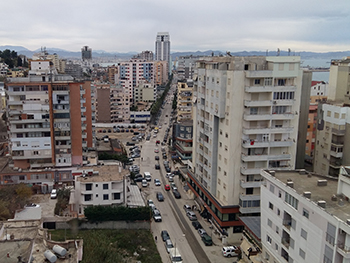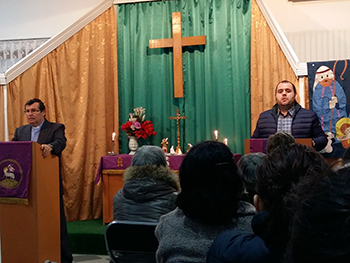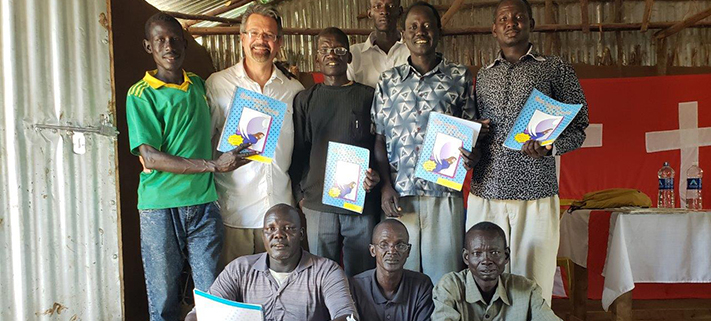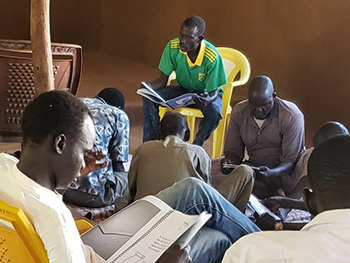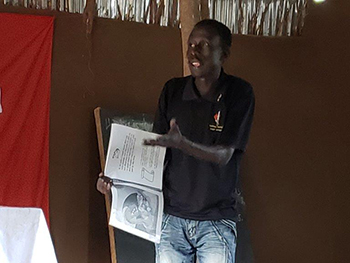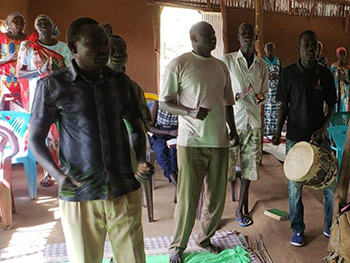Originally appears on the One Africa Team Blog. To subscribe to receive future updates directly in your inbox, visit oneafricateam.com. “Like” the One Africa Team on Facebook at fb.com/OneAfricaTeamWELS.
“Come over and help us!”
This first century request came from a man in Macedonia (Acts 16:9). Convinced that this plea was an outreach opportunity from God, a four-man team (Luke, Paul, Silas, and Timothy) set out on a mission journey to answer the call and share the gospel of Jesus. They traveled to various locations, spoke to the local people, visited the places of prayer, “reasoned with the people from the Scriptures, explaining and proving that the Christ had to suffer and rise from the dead . . .” (Acts 17:2,3)
The gospel did amazing things. It gave the people . . .
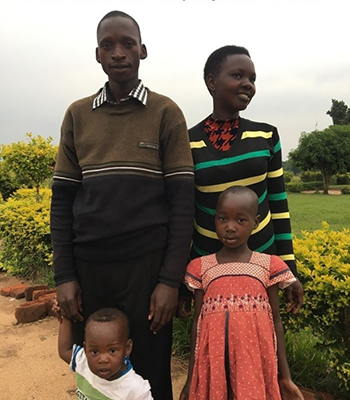
Pastor Makisimu Musa, wife Mary, with children Grace and Mark
New Hope.
“Come over and help us!”
This twenty-first century request came from a man in Bugiri, Uganda. Convinced that this was an outreach opportunity from God, a three-man team was formed and set out on a mission journey to answer the call and share the gospel message of Jesus. What Paul and his team did in Macedonia and beyond, the three-man team did in Uganda: traveled to various places, spoke to the local people, visited the places of prayer and expounded the Scriptures. By God’s grace, the results were the same: the gospel worked wonders and it gave people in Uganda . . .
New Hope.
The first century mission opportunity came by way of a vision (Acts 16:9). Last month’s opportunity came via an email. The request for help came from a man named Makisimu Musa, a pastor leading a fledgling church body in Uganda. Back in 2008, he caught wind of a Lutheran church body in America called WELS as well as a synod in Zambia and Malawi called the LCCA. (Pastor Musa was attending a school in Kenya and was told about the Lutheran Church, specifically about WELS and the LCCA in Zambia & Malawi.) He heard about their sound doctrine and practice and wanted to know more. He consulted with his fellow pastors and evangelists and together they decided it was time for them to reach out for help.
Frustrated with church politics, confused with false teachings, discouraged with a lack of Biblically sound materials, and uncertain of a God-pleasing way forward, they sent the message:
“Come over and help us!”
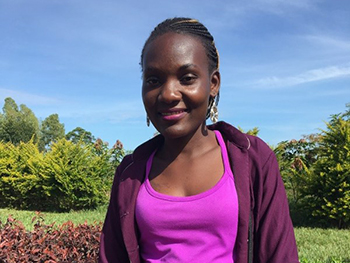
Translator Lydia
Those weren’t the exact words nor the only words, but it was the bottom line message. It went first to Pastor David Bivens (Divine Savior Lutheran Church, Sienna Plantation, TX), the Chairman of the Administrative Committee for Africa. Pastor Bivens then passed it along, and eventually it landed on the desk of Missionary John Hartmann in Zambia, who is the One Africa Team Outreach Coordinator for Africa. He assembled a team, set the dates, and planned the trip. On December 1, 2018, Missionary Hartmann, Pastor Pembeleka (LCCA-Malawi), and I touched down in Entebbe, Uganda.
The mission journey began. The outreach mission trip dates were set for November 30, 2018 – December 13, 2018.
We stayed with Pastor Musa and his family in his rural home. He had put together an aggressive schedule for us: travel to eight congregations, meet six pastors and five evangelists, teach three days of lessons, and attend two days of meetings.
In it all, we witnessed the Body of Christ in action:
- Church leaders attended 18 hours of lessons and presentations (Justification, the Church, and Stewardship);
- Pastors preached the Word and administered baptism;
- The pastor’s dear wife and others cooked our meals, washed our clothes, and tidied our rooms;
- A Lutheran member drove us safely to all of our destinations;
- Congregations prepared meals and traditional entertainment of plays, dramas, dances, and songs;
- Several people served as translators, turning our English words into Luganda and Lusoga.
Spending a dozen nights and covering over a thousand kilometers gave us a glimpse of the Ugandan people and their beautiful land. Uganda truly lives up to her name: the Pearl of Africa. So many natural wonders! Among the many, Uganda boasts the second largest lake in the world (Victoria) and the source of the longest river on earth (Nile). We were blessed to see them both.
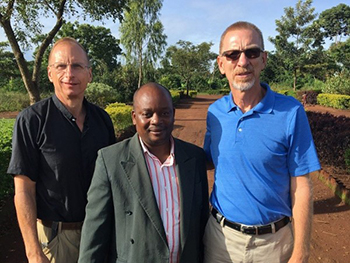
Left to Right: Rev. John Holtz, Rev. Bright Pembeleka, Rev. John Hartmann
But for us, the real Pearl of Africa is the Pearl of Great Price (Matthew 13:45,46): the gospel of Jesus Christ! It’s what prompted the first email from Pastor Musa. It’s what motivated our mission outreach trip. It was the foundation of our lessons and the focus of our meetings.
And it will guide any future plans and discussions with these new found brothers and sisters in Uganda.
May I humbly send you a request, too? Our plea comes from Uganda:
“Come over and help us!”
You don’t need to go there to answer the call. We simply, yet resolutely, ask for your prayers. Will you put Uganda on your prayer list? Pray for this mission outreach effort. The Lord has given us this wonderful opportunity and the gospel is already doing amazing things. The Pearl of Great Price is the only True Pearl of Africa . . . and the world!
Written by: Rev. John Holtz, Missionary in Malawi and member of the One Africa Team

Learn about the ministry work of WELS Missions.
Support the ministry work of WELS Missions.
[fbcomments num=”5″]
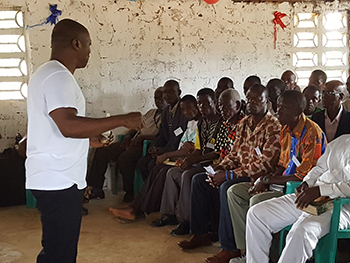

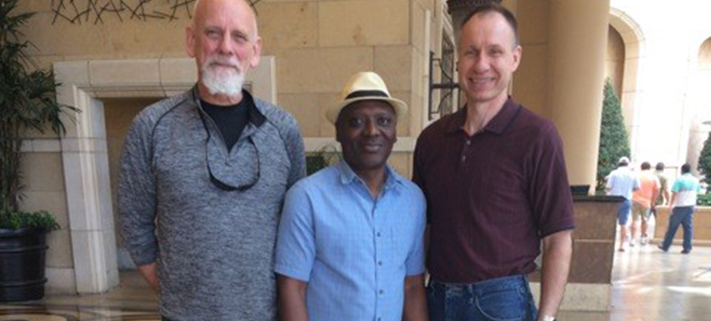

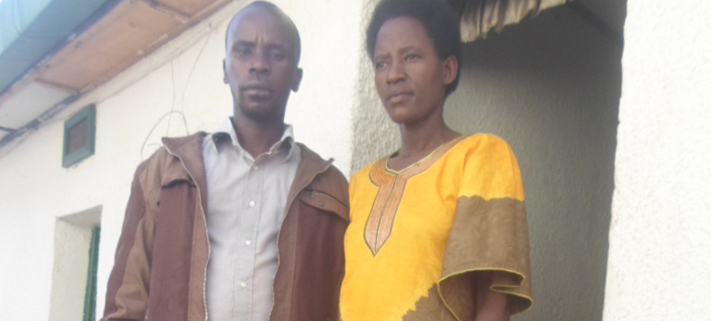
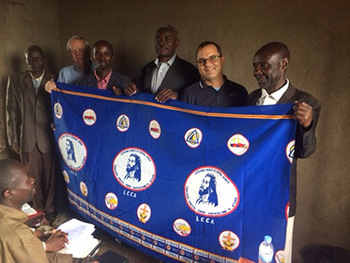
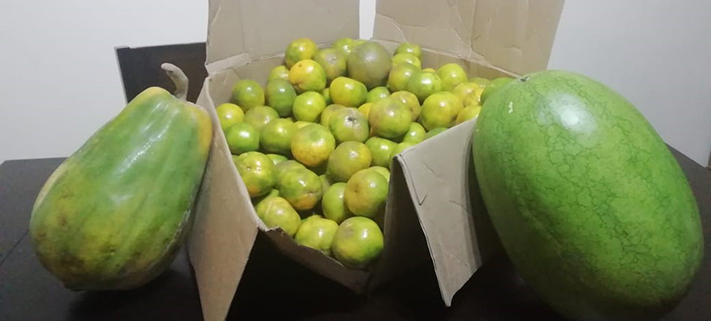
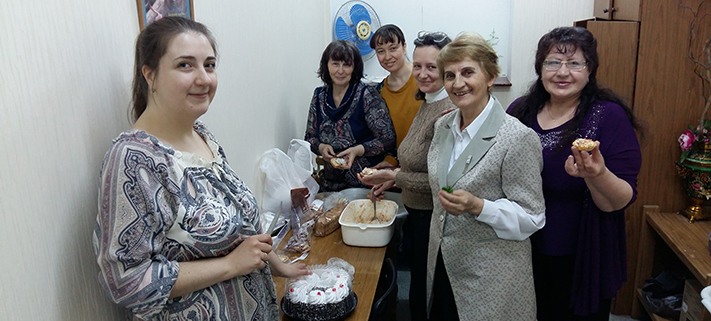
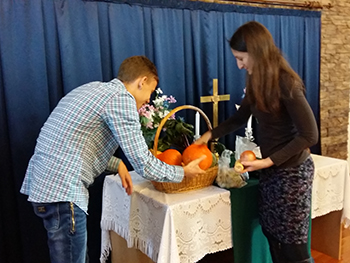
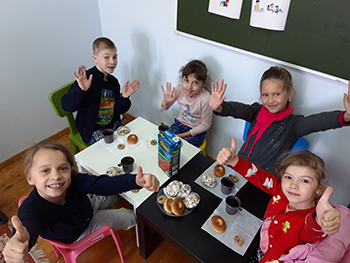
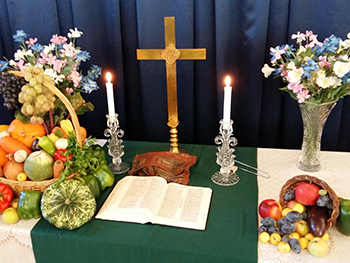
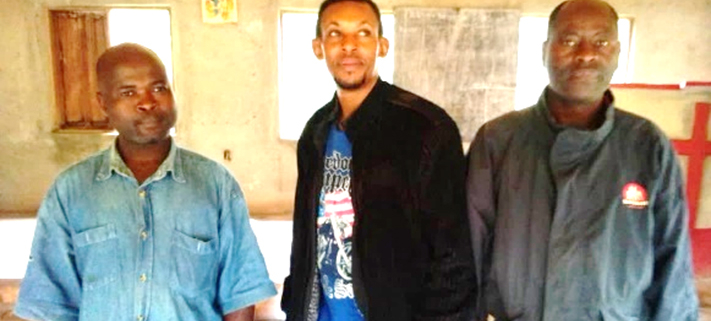
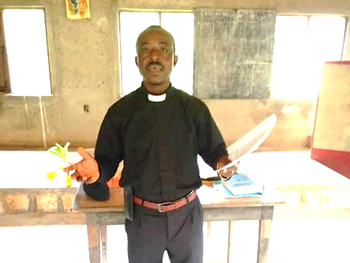
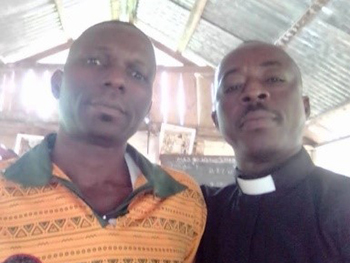
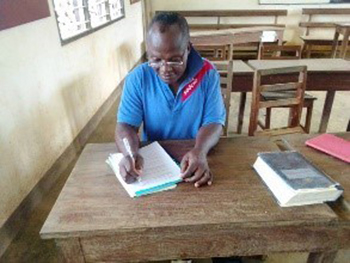
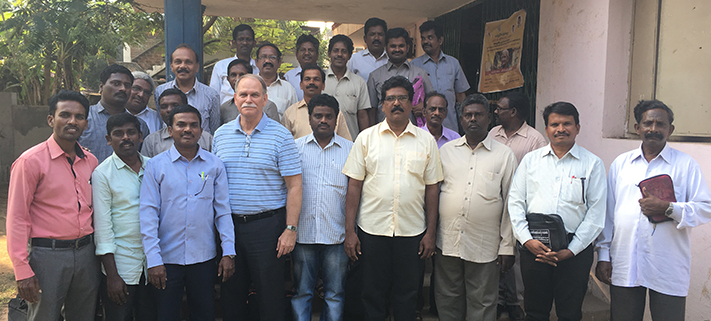
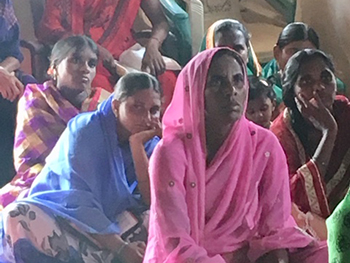 1) The caste system really hinders the spread of the gospel. In Zambia and Malawi, I saw how people from different tribes often didn’t get along well together. But the walls that tribalism erects in Central Africa pale in comparison to the barriers that the caste system builds to repel the gospel in places like South Asia. It’s rare for a Hindu of any caste to speak to a Christian. It’s practically unheard of for an upper caste individual to do so. God’s Word, of course, can accomplish great things. But it faces an enormous challenge among well over a billion people who live in South Asia. Something to keep praying about.
1) The caste system really hinders the spread of the gospel. In Zambia and Malawi, I saw how people from different tribes often didn’t get along well together. But the walls that tribalism erects in Central Africa pale in comparison to the barriers that the caste system builds to repel the gospel in places like South Asia. It’s rare for a Hindu of any caste to speak to a Christian. It’s practically unheard of for an upper caste individual to do so. God’s Word, of course, can accomplish great things. But it faces an enormous challenge among well over a billion people who live in South Asia. Something to keep praying about.